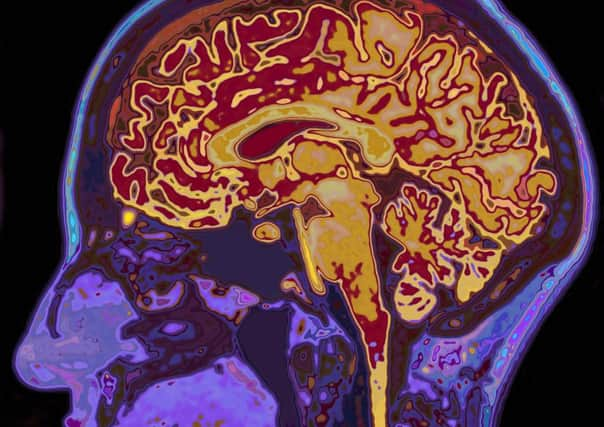One million Scots '˜waiting too long' for brain treatment


Dementia, epilepsy, motor neurone disease and Parkinson’s are among the conditions which have become a “Cinderella area” of Scotland’s healthcare, say neurological experts.
“Many people with neurological conditions are missing out on the support they need,” experts told Holyrood’s health committee.
Advertisement
Hide AdAdvertisement
Hide AdThe Scottish Government is planning to publish a new National Action Plan for neurological conditions later in the year.
Experts including Tanith Muller, vice-chair of the Neurological Alliance of Scotland, will tell MSPs this week that more action is needed from ministers.
“Under-investment in NHS services is having a significant impact on people with neurological conditions, where diagnosis and ongoing management of long-term conditions can be very complex,” states a submission from the Alliance.
It points to the misdiagnosis rate of 30 per cent for epilepsy, meaning many sufferers don’t have their condition “optimally controlled”.
“This means that some people are experiencing seizures that could be controlled, resulting in unnecessary costs ranging from emergency services, hospital admissions and ongoing social care and support needs as well as severe impacts on quality of life,” it adds.
“In epilepsy and a number of other conditions, a shortage of consultants and specialist nurses has a direct impact on individual outcomes.”
As the Scottish population ages, the number of people living with brain conditions is expected to increase.
One of Scotland’s leading experts in the field is Malcolm Macleod, an honorary consultant and head of neurology at NHS Forth Valley, as well as a professor of neurology at Edinburgh University. He agreed more action is needed.
Advertisement
Hide AdAdvertisement
Hide AdHe is calling for more consultant neurologists in the NHS, but warns of the difficulty in recruitment, with 13 per cent of posts unfilled last year even though funding was made available. More specialist nurses are also needed.
Macleod also drew attention to shortcomings in outpatient services.
“Most if not all neurology services in Scotland struggle to meet performance targets both for urgent and routine new patient referrals, and delays for return (follow-up) appointments are unmeasured,” he says in a submission to MSPs.
Consultants and GPs may also be opting against referring patients for neurological appointments and follow-ups if they think it will only have “moderate benefits” because staffing shortages could result in a system logjam.
Elinor Jayne, policy manager with Sue Ryder, said previous efforts to address neurological care have not been sustained.
“There must be leadership by the Scottish Government to drive forward changes on the ground,” she states in a submission.
“The new standards for neurological care must be backed up by an inspection regime that can easily identify where care falls short and how care can be improved at a local level, and this must be acted upon.”
A Scottish Government spokesman said: “We want to ensure that people living with neurological conditions have access to the best possible care and support across the country.
“The new plan will support the development of new neurological condition care standards which will apply across health and integrated community services.”